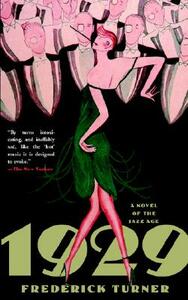Take a photo of a barcode or cover
challenging
dark
emotional
mysterious
reflective
sad
tense
slow-paced
Bix struck my heart strings
A 3.5, but I'm rounding up. On the one hand, I'm not sure anyone needs another novel about an alcoholic white male artist, but in the end Turner is able to capture so well a glimpse of truth within his fiction that it feels worth it.
There are moments, particularly in the early-middle of the book, where you can FEEL the music, and I will always appreciate an author who can bring a reader asking on that aural journey. The writing itself feels chaotic in some of those early big music scenes with Bix and the band bringing that "hot" jazz, absolutely causing a raucous energy.
This is obviously contrasted with much of the rest of the book, which bobs around in Bix's fog, particularly without Herman as a stabilizing force. And this helps you feel Bix's uneasiness, the hodgepodge of his life as it bounces along, all the while with no glue. But it still manages to capture the "tortured artist" schtick without celebrating it. The focus in that case where it IS celebrated is almost negative, pushing back against myth creation even while this book itself lionizes someone I can't imagine many have heard of and could therefore be seen as furthering a myth.
I think ultimately the blend of true history with a completely fabricated set of interactions and headspace helps balance capturing the reality of the 20s with a compelling look at coping with, not really failure, but mediocrity.
I don't know how much I'd recommend this because I could easily see folks finding it forgettable, but I appreciated the inner truth to what Turner put together, and it worked for me, personally.
There are moments, particularly in the early-middle of the book, where you can FEEL the music, and I will always appreciate an author who can bring a reader asking on that aural journey. The writing itself feels chaotic in some of those early big music scenes with Bix and the band bringing that "hot" jazz, absolutely causing a raucous energy.
This is obviously contrasted with much of the rest of the book, which bobs around in Bix's fog, particularly without Herman as a stabilizing force. And this helps you feel Bix's uneasiness, the hodgepodge of his life as it bounces along, all the while with no glue. But it still manages to capture the "tortured artist" schtick without celebrating it. The focus in that case where it IS celebrated is almost negative, pushing back against myth creation even while this book itself lionizes someone I can't imagine many have heard of and could therefore be seen as furthering a myth.
I think ultimately the blend of true history with a completely fabricated set of interactions and headspace helps balance capturing the reality of the 20s with a compelling look at coping with, not really failure, but mediocrity.
I don't know how much I'd recommend this because I could easily see folks finding it forgettable, but I appreciated the inner truth to what Turner put together, and it worked for me, personally.
There were times the book was really interesting and then other times that the book slowly trudged along. By the end I just wanted to finish it because I was so close to the end. I wanted it to be better, but it was fine and I finished it.
Don't read this if you're looking for an engaging story (the story is sparse), or if you're looking for historical info on Bix Beiderbecke (it's only loosely based on reality). Read it if you're looking for a book that evokes the FEELING of the 1920s. Or, at least, what I imagine the 1920s felt like.
When I originally picked this, I thought it was going to be non-fiction, and I think I'd still rather read a non-fiction history of this period. Not because of the semi-fictionalization -- I didn't hate the story, necessarily -- but the conceit of the writing made this a tiring book to read. Perhaps it would have worked better as a short fiction, but I could have used more restful moments. Less non-stop, run-on sentences, especially when the events are of quieter, introspective nature.



